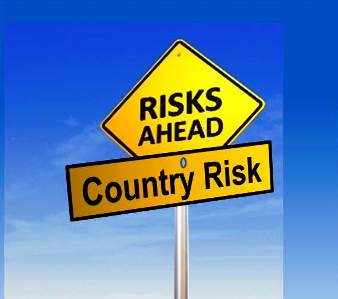 Australia – a cautious budget, not too tough but still disciplined;
Australia – a cautious budget, not too tough but still disciplined; - Peru – popular resistance keeps many mining projects in limbo;
- Slovenia – a political crisis has been avoided.
BRAZIL: The outlook for the economy remains bleak, beclouded, as it is, by three uncertainties that could raise havoc as they conflate. One of them is the pernicious corruption scandal that erupted at Petrobras and is now drawing ever wider circles. It has not yet touched President Rousseff directly, but prevents her from paying the needed attention to the management of the economy.
BURUNDI: The situation in Bujumbura remains fluid and there is no telling yet whether a successful coup has taken place or not. But there is no denying that the country is, again, on the edge of widespread violence likely to spill over into neighboring countries. There are threats to the economy which, overall, has not been doing badly.
CHILE: The composition of the new Cabinet is a safe bet. The team is more center-of-the-road than its predecessor. But it is not likely to do much to regain Pres. Bachelet the public support she has lost. The one thing that could do this would be a rapid economic pick-up, and it does appear that the country is turning the corner.
CHINA: With economic data still disappointing, the CB has embarked on another round of interest rate cuts. In addition, and more importantly, the CB is taking a leaf out of the European Central Bank’s book and is trying to encourage banks to buy the bonds issued by local administrations in order to restructure debt.
POLAND: The defeat of the incumbent Komorowski in the first round of presidential elections came as a surprise to most pundits. The ultimate outcome of the run-off may give some hints of what to expect in the parliamentary contest later this year.
SPAIN: The economy is rebounding handsomely, proving the correctness of the government’s policies. The question now is, however, whether the benefits will trickle down to the average Spaniard quickly enough to benefit Prime Minister Rajoy and his team politically ahead of the approaching elections.
TURKEY: The widening of the current-account BoP gap in March serves as a reminder of where the economy’s principal vulnerability lies. Meanwhile, President Erdogan, contrary to the Turkish constitution’s requirement of neutrality, is running an active election campaign among expatriates.
UNITED KINGDOM: The remarkable election victory won by the Tories and Prime Minister David Cameron brings knotty new challenges to the front door of Downing Street 10, of which the most important ones are the preservation of Britain in the European Union and that of the United Kingdom itself in the face of renewed pressure from Scottish separatists.
This page is provided by S.J. Rundt & Associates, Inc., specialists in country risk assessment, consultants to multinational companies & banks, and publishers of Rundt’s World Business Intelligence and The Financial Executive’s Country Risk Alert. To order a subscription or individual issues of these reports, in print or by e-mail, contact S.J. Rundt & Associates, P.O. Box 1572, Montclair, NJ 07042; Telephone: (973) 731-7502, Fax: (973) 731-7503; E-mail: info@rundtsintelligence.com; Web site: www.rundtsintelligence.com.






















